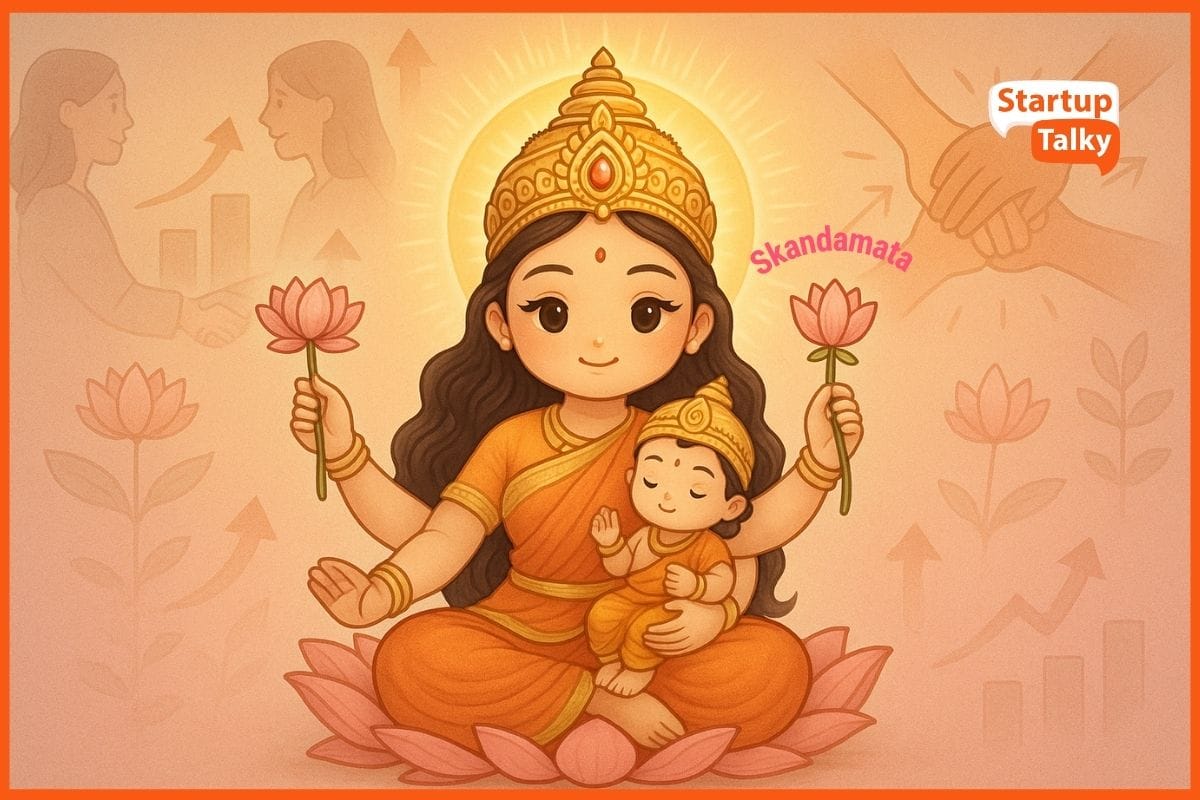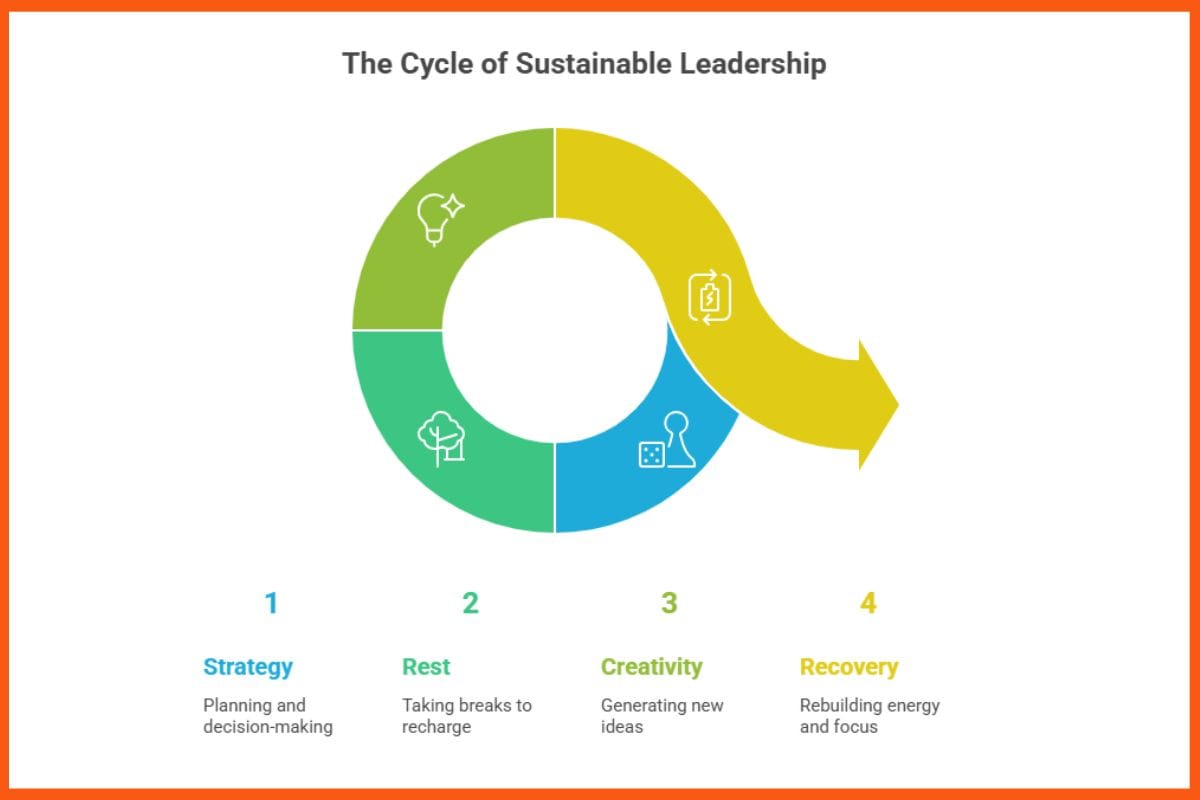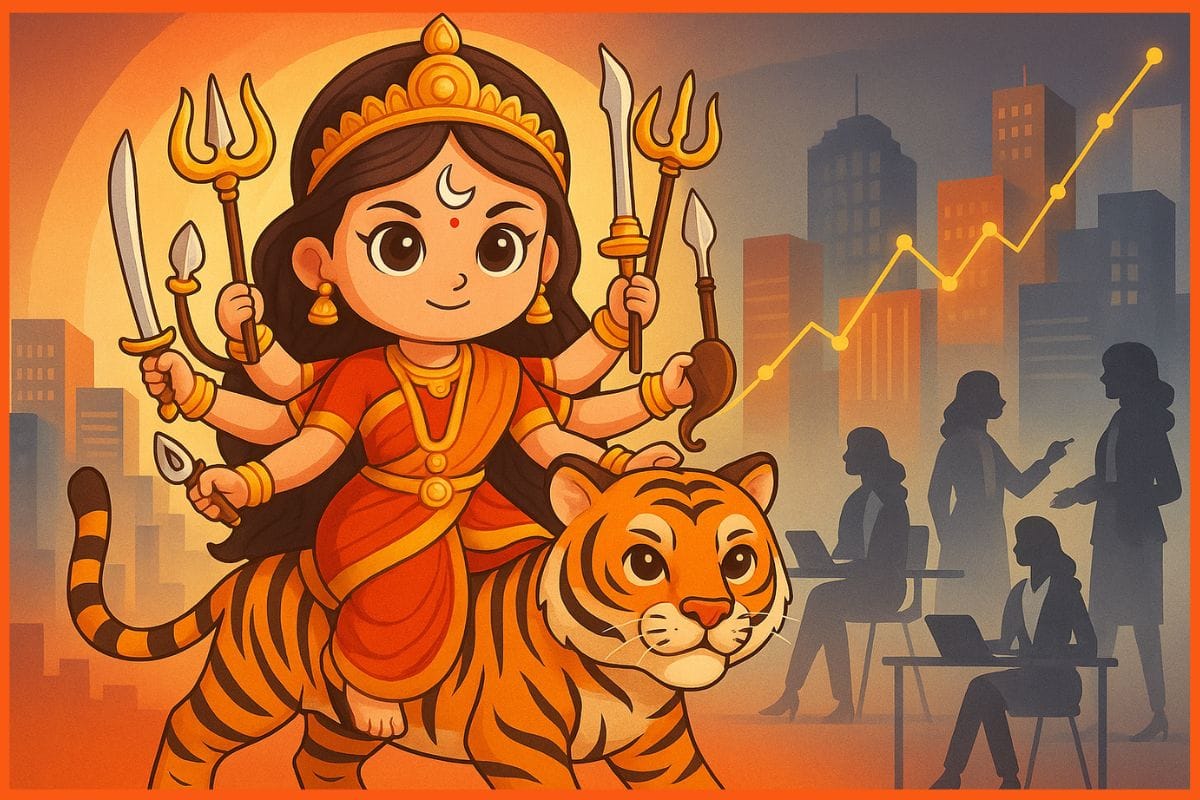This article has been contributed by Dr Malini Saba, founder of the Saba Group and Saba Family Foundation
Navratri isn’t just a festival we wait for because of the music, lights, colours and devotion; it’s messy, alive and joyful in its unpredictability, and it carries something deeper. Those nine nights are really about the strength of the feminine – how it bends, survives, and still finds a way to transform. Every form of the goddess we worship has a story, a meaning: courage, energy, wisdom, and compassion. It’s like looking at the many sides of what power really is.
For the women building businesses, it’s the same thing. The journey is rarely straight. Some days it’s about standing firm, other days it’s about holding back and being wise, and sometimes it’s about starting again with fresh energy. That’s what Navratri teaches too. It’s not only devotion or celebration; it’s also a reminder that change, whether in life or in work, always begins with that inner strength. Not the big speeches or grand gestures, but the small, steady choices we make when nothing is perfect.
Durga in the Everyday
Durga looks fierce in images, riding a lion. But in real life, courage doesn’t look like that. It looks like answering a client call when the plan has fallen apart. It looks like sitting with a tired team at 11 pm and saying, “We’ll fix this together.” It looks like trying again the next morning. Courage isn’t in drama; it’s in persistence.
Saraswati’s Quiet Reminder
We can learn everything and still miss the point if we don’t pause. Saraswati is that reminder. Knowledge helps, but wisdom comes when we notice what others don’t: the hesitation in someone’s voice, the frustration in someone’s silence. The pause before acting often saves us from mistakes.

Lakshmi and Shared Growth
Success is meaningless if we keep it to ourselves. Lakshmi reminds us of that. We’ve all seen growth that stayed locked with one person; it dies quickly. But when we mentor, share, and open doors for others, our own work gains roots. Communities grow when we grow together. Growth confined to oneself is fleeting.
Women-led ventures often embrace collaboration instinctively: mentoring, supporting peers, and building networks. A skill shared, a platform extended, a door opened – these small acts ripple outward, creating lasting influence. Communities thrive when growth spreads beyond the individual. Influence multiplies relationally, not in isolation.
Kali and the Need to Be Bold
There are days when you know deep down that playing safe won’t get you anywhere. You sit in a meeting, and everyone is circling the same old ideas, afraid to speak the thing that actually needs to be said. You look at the numbers and realise the system you’ve been working in is outdated. Markets stall, teams hesitate, and you feel the weight of “this is how it’s always been.” That’s when Kali comes alive – not as a figure from a book, but as a fire in your own chest.
Kali doesn’t whisper. She disrupts. She tells you it’s time to break something before it breaks you. And yes, it feels risky. Your stomach knots, your palms sweat, and you wonder if you’re about to wreck everything. But without that boldness, nothing shifts. No industry ever changed because someone politely waited for permission. Sometimes leadership is exactly that – doing the thing that feels terrifying because the alternative is stagnation.

Katyayani’s Firm Stand
Boldness is one thing. But sometimes courage looks quieter. It looks like refusing to move when everything is pushing you to.
In negotiations, when you can feel the scale tipping unfairly, it takes strength to say, “No, this isn’t acceptable,” instead of compromising to close the deal. When someone on your team is being sidelined or their voice is being dismissed, it takes courage to stop the meeting and call it out. When bending would make life easier but cost you your integrity – that’s when Katyayani shows up.
Her energy is not flashy. It’s in the spine, not the spotlight. Leadership is often like that. It’s not about rushing forward but about planting your feet and saying, ‘This line, we don’t cross.’

Endurance, Calmness, Patience
Not everything can be fixed with bold moves. Some parts of leadership feel endless. You wake up, and it feels like you’ve been walking the same road for months with no finish line in sight. That’s when Kaalratri teaches endurance – the grit to keep putting one step in front of the other even when it’s dark.
Mahagauri brings calmness into the mix. She’s the reminder that not every problem needs an instant reaction. Sometimes the smartest thing a leader can do is pause, breathe, and wait until the dust settles. And then there’s Brahmacharini, who teaches patience. The daily grind no one claps for – the emails, the small follow-ups, the quiet consistency – those are what build the foundations for everything else.
None of these traits are glamorous. They won’t get applause on stage. But they hold leaders together when quick wins fade.
Community and Rhythm
Navratri isn’t a solo performance. Anyone who has danced knows that the circle is what gives it meaning. Each step isn’t just yours; it feeds into the rhythm of others.
Business works the same way. You can be brilliant, but if you’re dancing alone, the music doesn’t last. Teams, mentors, collaborators – even competitors – all create the rhythm that sustains us. Going fast on your own burns you out. Going together keeps you moving longer.
Authenticity and Leadership
Every goddess has her own way of showing strength. None tries to copy another. That’s a lesson worth holding close.
Too often, leaders feel the pressure to imitate – talk like the popular CEO, adopt the style of whoever is trending. But authenticity is what stays. People can sense when you are playing a role versus when you’re being real. Real leadership doesn’t mean being perfect. It means being trustworthy. Sometimes that’s intuition. Sometimes empathy. Sometimes decisiveness. Sometimes creativity. But it’s always yours.
Light Wins
Every Navratri ends with light pushing back darkness. The darkness doesn’t vanish – it’s part of life – but light still wins.
That’s what persistence is. You keep showing up, even when things fall apart. You focus on purpose over control. You use knowledge not as decoration but as action. And you measure success not just in revenue but in how many people grow with you, how many relationships last, and how much resilience you’ve built in yourself and your team.
That’s what it means for light to win.
Reflection
What most people forget about Navratri is the quiet. The pauses. The stillness between drums and songs. That’s where reflection lives.
Leadership needs the same thing. Without space to stop, think, and realign, we start reacting instead of deciding. The truth is, strength doesn’t arrive in big heroic gestures. It grows through small acts of recovery – when a campaign fails and you regroup, when a client walks away and you rebuild, when your team shifts and you find your balance again. Resilience is ordinary persistence, repeated until it becomes momentum.
Lessons from Rituals

Even the small rituals matter. Fasting builds discipline. Music restores joy. Dance restores energy. These are not “extras”; they are survival. Leadership also needs that rhythm: strategy, yes, but also rest, creativity, and recovery.
Women leaders often bring this instinctively. They know a business that only runs will collapse, but a business that breathes will last.
The Essence
Navratri is not only about goddesses. It is about us. It shows that strength wears many faces – boldness, patience, calmness, fairness, and empathy. When women entrepreneurs bring all of this into their work, they don’t just build companies. They build communities. They shape industries not only with profit but also with purpose.
Leadership, like Navratri, is messy. It flickers and steadies. It bends and rises again. The lamps of Navratri aren’t perfect – they shake in the wind, sometimes dim, sometimes blaze – but they never go out. Neither do we. With persistence, reflection, and shared rhythm, we keep the flame alive.


Leave a Reply